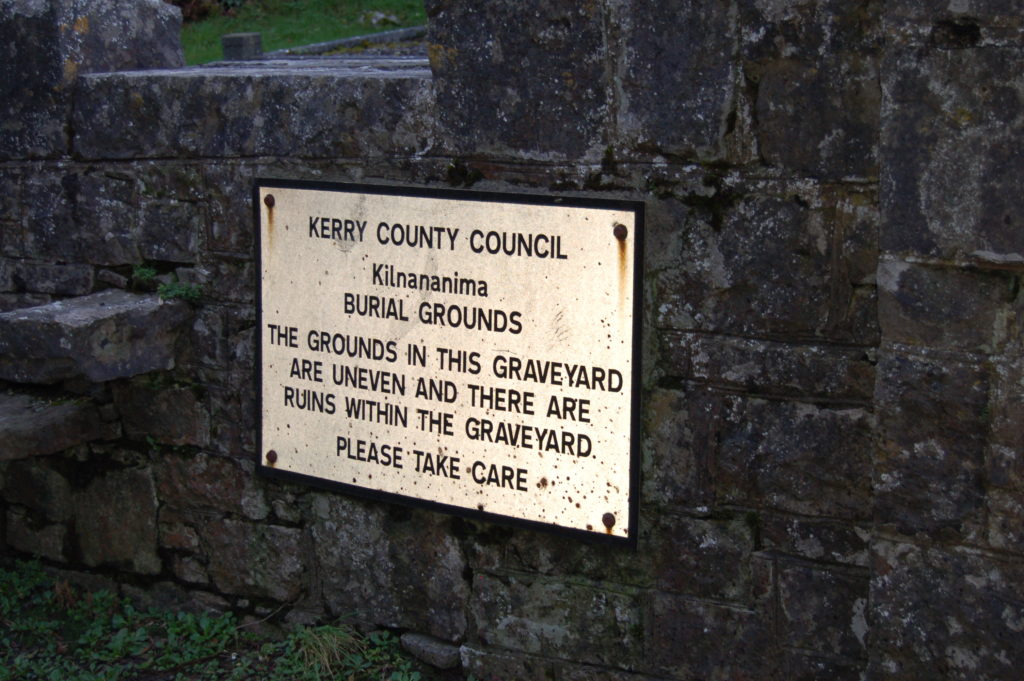The Erl of Desmond and his kin hath of lands under him 120 miles. Four hundred horse, eight battles of Galoglas, 1 battalion crossbow men and gunners, three thousand kerns. His country is long, and so environed, and hateth the kings laws, so they give none aid.1
It is clear from the extensive notes held in the collection that Michael O’Donohoe took a great interest in the history of the Earls of Desmond, most notably Gerald, 16th Earl (today considered the 15th Earl) who perished in 1583 and whose death was a watershed in the history of Castleisland.
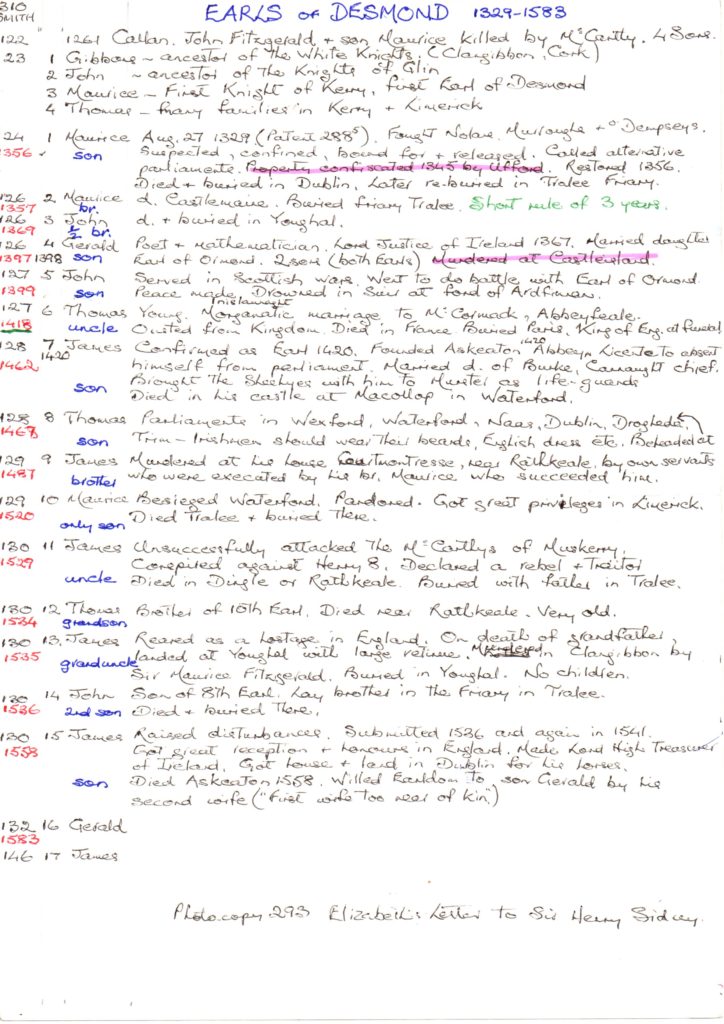
Desmond died at a place known as Glanageenty. A document in the collection described the place as ‘secluded as a glade in the Great Lone Land’.
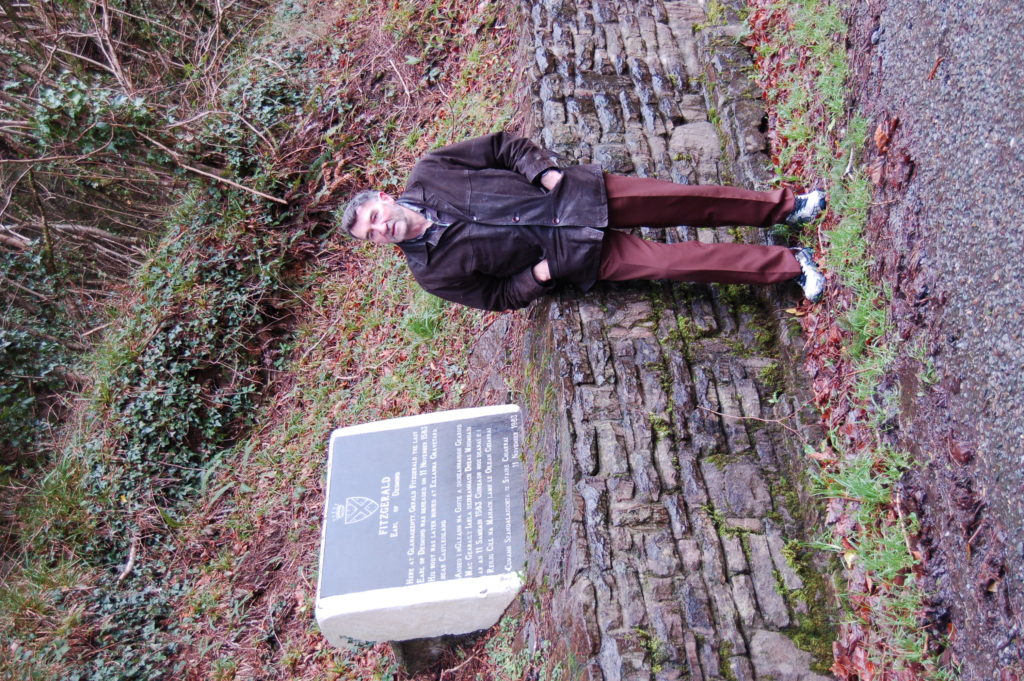
In his three-volume The Self Condemned (1836), Thomas Gaspey imagines Desmond’s final hour:
It was in a lonely glen, some four miles east of Tralee, that the noble fugitive, about an hour before midnight, determined to halt. He entered a little grove, and in the ruins of a fallen hovel his attendants made a fire round which they seated themselves and prepared to repose till the return of day.
The party was disturbed from sleep by a rush of kerns:
They could not on the instant recover their arms, and in the wild alarm which came over them, thought but of saving their lives by retreat. All fled, some of them being wounded as they passed, and the aged Earl alone remained to confront his foes. A blow on his sword arm, which almost severed the limb from his trunk rendered him defenceless … his head struck from his body was carried by Ormond.
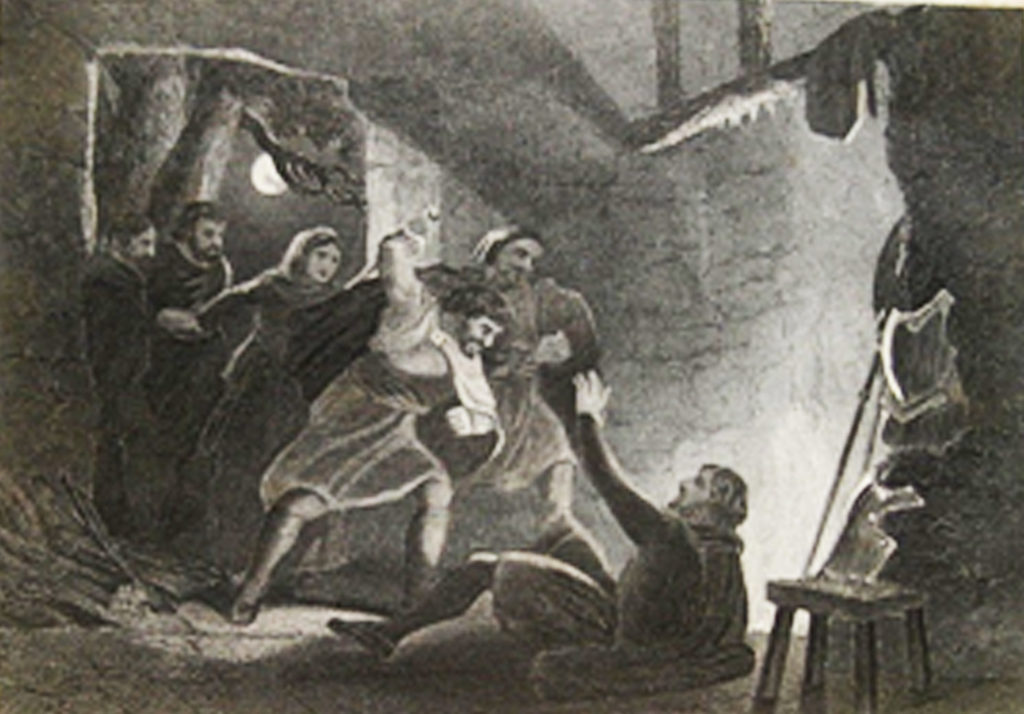
Elsewhere in the collection, Michael followed events after the death of the earl:
Arrangements were made for the distribution of Desmond’s lands … The lands were first surveyed, and divided into Seigniories of 6,000 to 12,000 acres. This done, the Earl was declared attainted and his lands confiscate at a Parliament held on the 28th April 1586.2
Enduring story of Desmond
Some three hundred and fifty years after the event, the 1930s Schools’ Collection demonstrates that the story of Desmond was still current:
There is a place in Glounowen called Tig an Iarla. Here are the ruins of a mud-walled cabin where the Earl of Desmond found shelter for some time before he went to Glounnaneenta. 3
The history of the Earls of Desmond continues to fascinate.
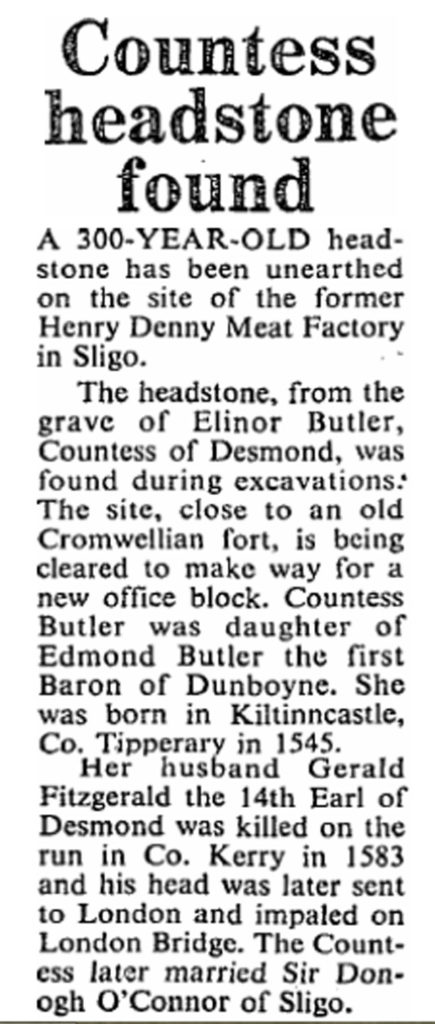
The main catalogue contains references to further reading on the subject.
_________________________
1 From 'Ireland, as described by Lawrence Nowel, Dean of Lichfield, who died 1576', History of Ireland, as disclosed by Irish Statutes passed by Irish Parliaments between 1310 and 1800 (1893) by Annie M Rowan. 2 IE MOD/71 which also contains a note on Rev James Carmody. See IE MOD/39 for an account of the seigniory. 3 Cait Ní Tarrant, as related by Mr Jerh Sullivan, Glounawaddra, Kingwilliamstown, Gleanntán, scairteach an ghleanna (Cordal east), p257.


